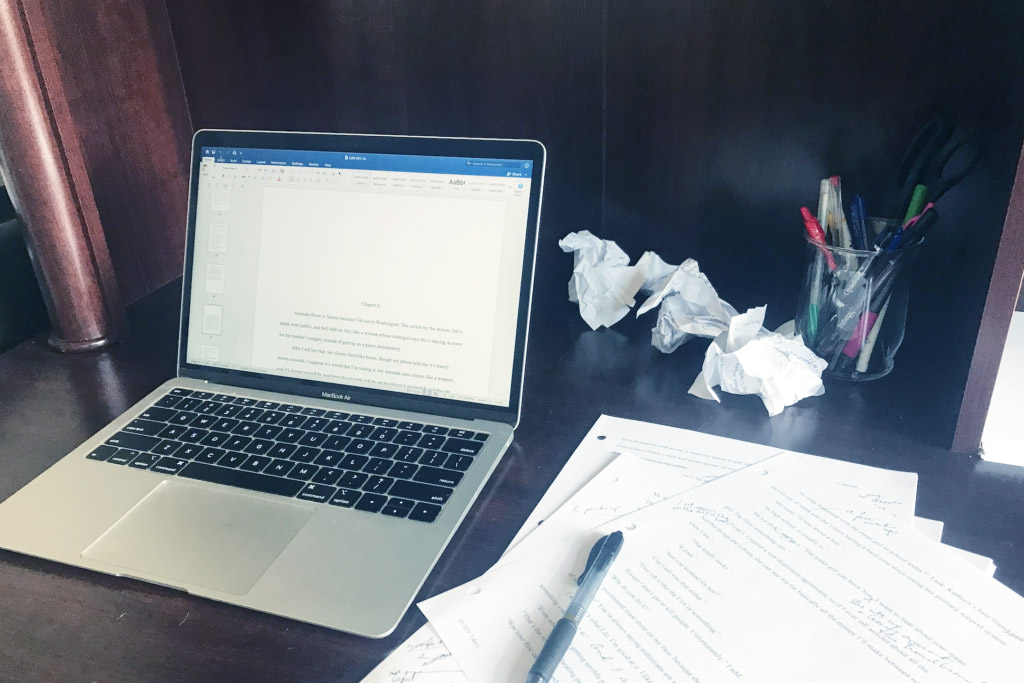Once upon a time, I wrote a book. Two books, actually. Three, if you count my dissertation, but it’s full of Greek and academese so I probably shouldn’t. Oh, and several screenplays.
By “a book,” I meant a novel, because I’ve only written (finished) one of those. I dusted it off (metaphorically; it only exists electronically) and read it a week or so ago. I did so with trepidation, because I wrote it 20-odd years ago (how can I be old enough to say that?) and who knew what purple prose might lie within?
By the way, please excuse all the parentheses. They tend to crop up like mushrooms on the lawn after a rain (something I never see anymore, in arid New Mexico) when I write quickly in first draft, and get uprooted when I revise. But this being The January Project, there’s no time for that.
Anyway, back to the novel. It was a spy thriller, a genre I used to devour like popcorn at the movies (the bad similes get edited out, too). The reason I dug it out was that I’d just re-read a novel (one that has nothing to do with spies) I started writing in November, 2014, during NaNoWriMo. I bailed barely a week into that literary crucible, so I’d only churned out about 10,000 of the 50,000 page goal, and got up to around 30,000 words over the next few months.
I’m not sure why I always expect things I’ve written to be terrible (most of what I write isn’t terrible, after all) but I do. The half-finished novel wasn’t terrible, but I was stuck, not sure how to write myself out of becalmed patch of plot, which is why I abandoned it in the first place.
Writers who write about writing (at least the ones who write screenplays or genre fiction when they’re not writing about writing) say that crafting fine prose is all well and good but kind of pointless if the fine prose you’re crafting doesn’t tell a good story. I know I can craft fine prose (when I have time to edit out the parentheses and adverbs) but I’m less sure of my storytelling skills.
More to procrastinate than anything else, I read my youthful spy thriller to see how I handled story architecture. I was gratified by its not-terribleness, both in terms of plot and prose. The prose wasn’t as lean and mean as what I write now, but wasn’t cringe-inducing (as in what Elmore Leonard called “novels full of rape and adverbs”). If it had been too good, I’d have been discouraged at not having made progress after years of practice.
Better still, it was tightly plotted. Twists and turns aplenty. People getting killed often enough to keep things interesting, but not enough to leave you in that post-gore-and-betrayal hangover so many of us felt after the Red Wedding. Some of the characters were wooden, and the premise no longer seemed compelling, but I had plotted the living daylights out of it.
Encouraged, I procrastinated further by reading one of my screenplays, forgetting to expect terribleness. That one was terrible. Just godawful. I thought about reading a second screenplay to see if the terrible one had been a fluke, but fearing the worse, I went back to work on the unfinished novel instead.
Then I remembered my poor, neglected blog, and wrote this post. Procrastinatio vincit omnia.


1 Comment. Leave new
Bruce loved your unfinished novel. He talked about it all the time, years after having read your draft. I had forgotten that about him and thank you for bringing back that memory for me! I can hear him so clearly saying, “why didn’t Brigette ever finish her novel? It was great!”